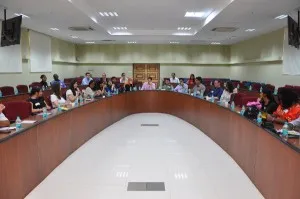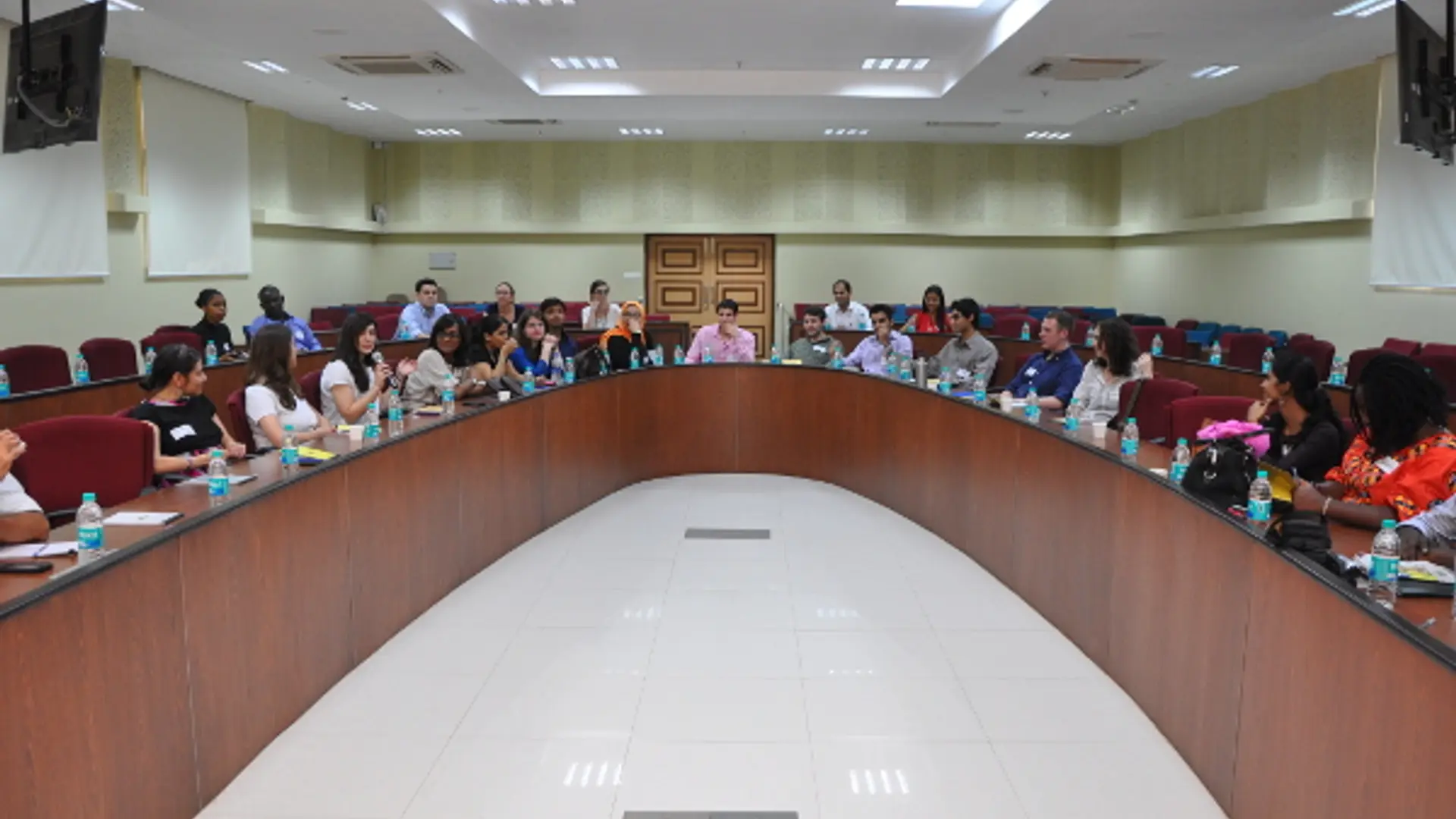IDEX Accelerator’s inaugural event gives fellows a macro understanding of India’s social sector
IDEX Accelerator (IDEX) a career launch-pad for aspiring social enterprise practitioners, recently conducted the introductory event for this year’s 6-month program earlier this week at TISS Mumbai. According to Deepak Kamble, Field Director, IDEX Accelerator, India the focus of this year’s program is to cultivate intrepreneur: “we want this event to give fellows the chance to really introspect about what they really care about, what they are good at, and how they will best fit into the social enterprise ecosystem. This is their first touchdown in India.” The present batch comprises of 31 fellows from around the world, of which 10 are Indians. After the two day event at TISS Mumbai, these fellow would go to their respective cities and undertake their placements, and the event was an endeavour to give them exposure on what is happening in the sector and help them get a better understanding of what they can expect to get out of the IDEX Accelerator Fellowship.

The day began with Deepak setting the agenda for the day. The next speaker was Aparajita Aparajita Agrawal, director, Intellecap who explained what Intellecap did and spoke at length about the social enterprise space in India. “Social enterprises try to increase access to critical goods and services to people at the bottom-of-pyramid. They help improve productivity and operate in critical areas like agriculture, education, energy, sanitation, etc,” she said. Intellecap is one of the earliest investors in social enterprise in India.
The next speaker was Shalabh Sahai, co-founder, iVolunteer, a venture that promotes and facilitates volunteering in India. Shalabh told the fellows that whatever they do in life, they should always be willing to accept failure. “More so in case of social enterprises, which works for a social purpose. You will be able to find who you are and what you are capable of, when you work in a social enterprise. But be ready to take it slow. Life in villages can be very slow,” cautioned Shalabh to the young bunch who were listening in rapt attention.
The event was a good blend of speakers and interactive sessions and there were a number of games and activities that IDEX field co-ordinators engaged the participants in through the day.
Post lunch session started with Pradeep Sharma, country director, Gray Matters Capital spoke to the participants on how to be a good intrepreneur. “Intrepreneur is one who takes the organization risk from inside and is very important for the growth of the business,” emphasized Pradeep. However to become one, it is important that you understand the culture of the organization, not try to change things from Day 1, be patient in what you want to achieve and if one can support one’s claims with data and evidence then it will be easier to usher in change, said Pradeep.
However the most interesting and interactive session of the day was the last one conducted by K Sree Kumar, CEO, Agsri. Agsri is working towards developing techniques that can help reduce water consumption for agriculture, especially in case of crops like rice and sugarcane. Sree Kumar emphasized on the importance of having perspective. “Are you trying to change the society or do you want to create an impact? What do you really care about? And which is the area where you can be better than others,” Sree Kumar questioned the audience. He said social enterprises are those that allow people to make small value transactions and fulfills a need when even the Government cant make a difference. “For anything that can be sustainable in the long term, it is very important that someone makes money. Social enterprises work well in crowded places and therefore makes more sense to do in a developing country which has a larger population,” he said.
Sree Kumar shared his experience of being associated with large organizations and how in some case larger organizations are the best one making a difference socially. He cited the well documented example of IBM versus Carnegie in the book Philanthrocapitalism, he also spoke about Amul and the Tata family which are today big corporate as well as have a large impact socially.



